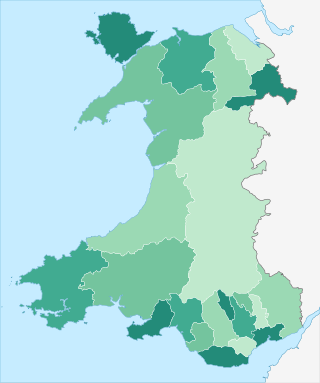
Since 1 April 1996, Wales has been divided into 22 single-tier principal areas, styled as counties or county boroughs for local government purposes. The elected councils of these areas are responsible for the provision of all local government services, including education, social work, environmental protection, and most highways. Below these there are also elected community councils to which responsibility for specific aspects of the application of local policy may be devolved. The last set of local elections in Wales took place in 2022, with the next due to take place in 2027.
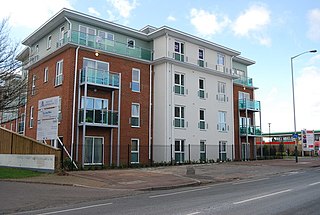
In Ireland and the United Kingdom, housing associations are private, non-profit making organisations that provide low-cost "social housing" for people in need of a home. Any budget surplus is used to maintain existing housing and to help finance new homes and it cannot be used for personal benefit of directors or shareholders. Although independent, they are regulated by the state and commonly receive public funding. They are now the United Kingdom's major providers of new housing for rent, while many also run shared ownership schemes to help those who cannot afford to buy a home outright.

In the United Kingdom, regional development agencies (RDAs) were nine non-departmental public bodies established for the purpose of development, primarily economic, of England's Government Office regions between 1998 and 2010. There was one RDA for each of the NUTS level 1 regions of England. Similar activities were carried out in Wales by the Welsh Government Department of Economy and Transport, in Northern Ireland by the Department of Enterprise, Trade and Investment and in Scotland by Scottish Enterprise and Highlands and Islands Enterprise.

The National Lottery Community Fund, legally named the Big Lottery Fund, is a non-departmental public body responsible for distributing funds raised by the National Lottery for "good causes". Since 2004 it has awarded over £9 billion to more than 130,000 projects in the UK.
Action on Smoking and Health (ASH) is the name of a number of autonomous pressure groups (charities) in the anglosphere that seek to publicize the risks associated with tobacco smoking and campaign for greater restrictions on use and on cigarette and tobacco sales.

The National Council for Voluntary Organisations (NCVO) is the umbrella body for the voluntary and community sector in England. It is a registered charity. NCVO works to support the voluntary and community sector and to create an environment in which an independent civil society can flourish. NCVO has a membership of more than 14,000 voluntary organisations. These range from large national bodies to community groups, volunteer centres, and development agencies working at a local level.
Wales Council for Voluntary Action (WCVA) is the national membership organisation for the third sector and volunteering in Wales. Its aim is to work towards 'A future where the third sector and volunteering thrive across Wales, improving wellbeing for all'.
ACEVO is a membership body for the leaders of third sector organisations in England and Wales. ACEVO has sister organisations in Scotland (acosvo) and Northern Ireland.
Northern Ireland Council for Voluntary Action is the national infrastructure body for the voluntary and community sector in Northern Ireland. NICVA also hosts and manages several websites for Northern Ireland's voluntary and community sector online.

The Building Research Establishment (BRE) is a centre of building science in the United Kingdom, owned by charitable organisation the BRE Trust. It is a former UK government national laboratory that was privatised in 1997. BRE provides research, advice, training, testing, certification and standards for both public and private sector organisations in the UK and abroad. It has its headquarters in Garston, Hertfordshire, England, with regional sites in Glasgow, Swansea, the US, India, the Middle East and China.

Emergency medical services in the United Kingdom provide emergency care to people with acute illness or injury and are predominantly provided free at the point of use by the four National Health Services (NHS) of England, Scotland, Wales, and Northern Ireland. Emergency care including ambulance and emergency department treatment is only free to UK residents and a charge may be made to those not entitled to free NHS care.
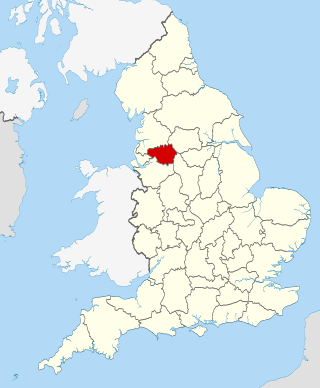
The Greater Manchester Combined Authority (GMCA) is a combined authority for Greater Manchester, England. It was established on 1 April 2011 and consists of 11 members; 10 indirectly elected members, each a directly elected councillor from one of the ten metropolitan boroughs that comprise Greater Manchester, together with the directly elected Mayor of Greater Manchester. The authority derives most of its powers from the Local Government Act 2000 and Local Democracy, Economic Development and Construction Act 2009, and replaced a range of single-purpose joint boards and quangos to provide a formal administrative authority for Greater Manchester for the first time since the abolition of Greater Manchester County Council in 1986.
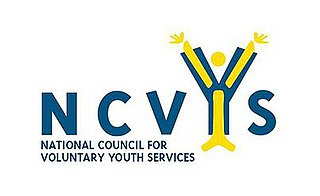
The National Council for Voluntary Youth Services (NCVYS) was a membership network of over 200 voluntary and community organisations, as well as local and regional networks, that work with and for young people across England. The organisation closed in 2016. For 80 years, NCVYS acted as an independent voice of the voluntary and community youth sector, working to inform and influence public policy, supporting members to improve the quality of their work, and also raising the profile of the voluntary and community sector's work with young people.

The Canal & River Trust (CRT), branded as Glandŵr Cymru in Wales, holds the guardianship of 2,000 miles of canals and rivers, together with reservoirs and a wide range of heritage buildings and structures, in England and Wales. Launched on 12 July 2012, the Trust took over the responsibilities of the state-owned British Waterways in those two places.
The Scottish Council for Voluntary Organisations (SCVO) is the national membership body for Scotland’s charities, voluntary organisations and social enterprises. SCVO works to support people to take voluntary action to help themselves and others, and to bring about social change. It provides services and support to the third sector in Scotland to advance shared values and interests. SCVO has approximately 2,800 members, ranging from individuals and grassroots groups, to Scotland-wide organisations and intermediary bodies. The organisation employs approximately 100 staff.
Innovate Trust is an independent charity registered in the UK. based in Cardiff operating across South East Wales. Innovate Trust provides supported living services to adults with learning disabilities, mental health conditions, physical disabilities or sensory impairments in Cardiff, the Vale of Glamorgan and Rhondda Cynon Taff.
Sustainable Development Goals and Lebanon explains major contributions launched in Lebanon towards the advancement of the Sustainable Development Goals SDGs and the 2030 agenda.

The Cardiff Capital Region is a city region in Wales, centred on the capital city of Wales, Cardiff, in the southeast of the country. It is a partnership between the ten local authorities of Blaenau Gwent, Bridgend County Borough, Caerphilly County Borough, Cardiff, Merthyr Tydfil County Borough, Monmouthshire, Newport, Rhondda Cynon Taf, Torfaen, and Vale of Glamorgan, local businesses in southeast Wales and other organisations. The regional city deal is funded by the UK Government and Welsh Government. The Cardiff Capital Region includes the cities of Cardiff and Newport, and most of the South Wales Valleys, with the region being coterminous with the area defined as South East Wales.
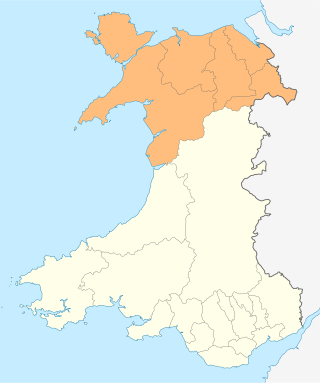
The North Wales Economic Ambition Board, branded as Ambition North Wales, is a joint committee and decision-making body overseeing the North Wales Growth Deal, a regional economic growth deal covering the North Wales region. It is a partnership between the six local authorities of Conwy County Borough, Denbighshire, Flintshire, Gwynedd, Isle of Anglesey, and Wrexham County Borough, and other local partners in the region, including Bangor University, Wrexham Glyndŵr University, Grŵp Llandrillo Menai, Coleg Cambria, and various private sector representatives.











